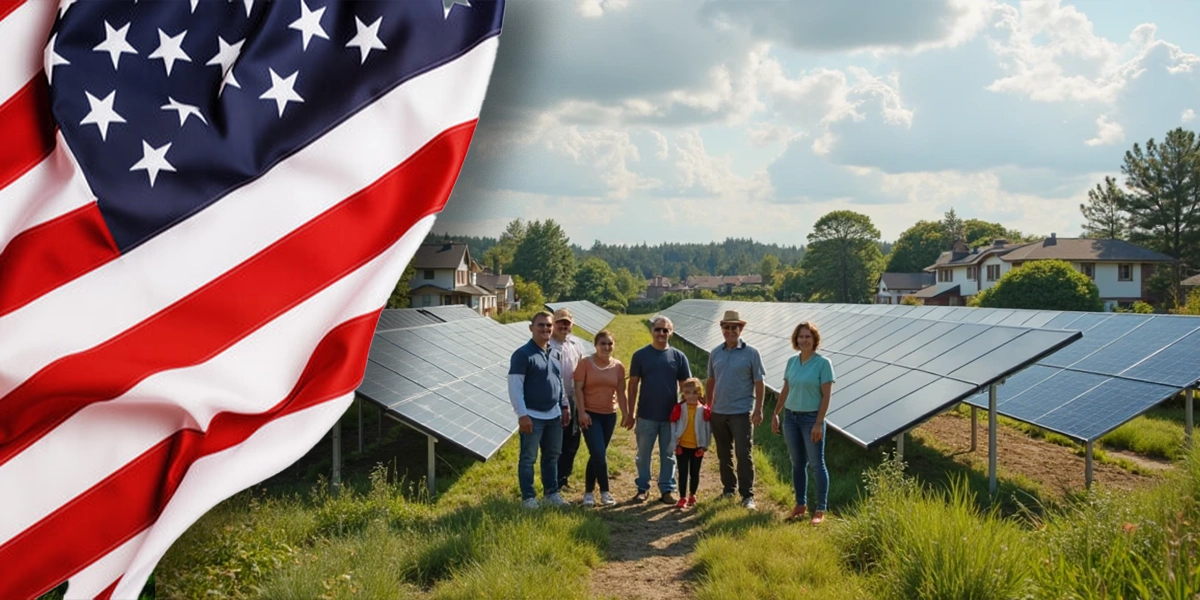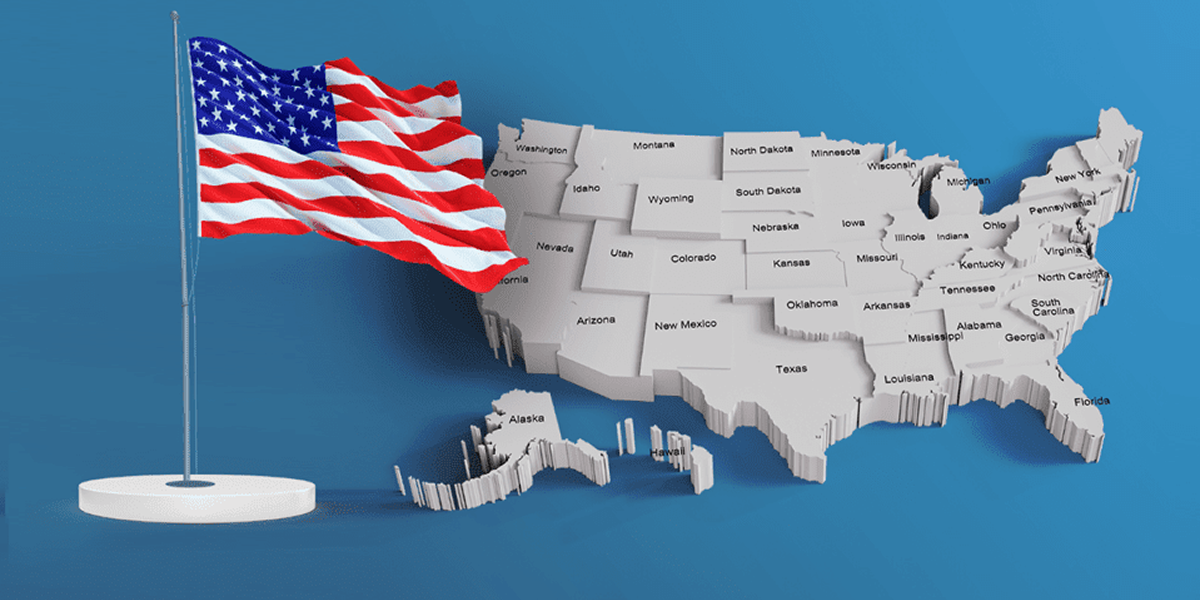- Updated On: June 24, 2025
U.S. Low-Income Solar Programs:
A Complete Guide
In the U. S., low-income homeowners are struggling with the increasing inflation and high energy bills. They spend most of their earnings to pay their home electricity bills. Although installing a residential solar system is a good option to mitigate these energy problems, the high upfront installation cost may not be affordable for a low-income homeowner. But there are solar incentive programs, 30% federal tax credit and flexible financing options to offset the initial expenses, still many low-income families cannot manage to install rooftop solar.
With rising electric bills and power outages, many states are now offering incentive programs and rebates for low-income homeowners to go solar with lower expenses. These programs include state tax credits, rebates, grants, community solar projects and low interest rates for switching to clean power.

We will highlight some of the top low-income solar programs available in 2025 and how you can qualify for them.
Does any state in the United States offer free solar panels?
The term “free solar panels” is commonly misleading, and refers to contracts that are not free, including solar leases or power purchase agreements (PPAs). However, few states provide low-income consumers with incentives for solar installations like low interest solar loans. To lower energy prices and encourage the use of renewable energy sources, these initiatives are made for people who may not be able to purchase solar systems. For eligibility and information, always verify state-specific programs.
What are the low-income solar programs offered in 2025?
Some programs for low-income families to get solar panels for their houses are supported by the state, nonprofit organizations, and utilities. They use rebates, grants, and other performance-based incentives to reduce the initial costs.

Colorado Rooftop Low Income Program
The Weatherization Assistance Program (WAP) by the Colorado Energy Office (CEO) provides incentives for installing solar panels on roofs for single-family low-income houses. The families must be their permanent residents. The homeowner’s income should not be more than 200% of the federal poverty level. The solar installation must also create a net benefit above solar system cost as assessed by the CEO.
Interested homeowners can get more details or send an application to the Colorado Energy Office, or their local weatherization office. This program supports the initiatives to increase the adoption of solar energy in Colorado, especially among low-income families.
Colorado Xcel Energy Solar Rewards Program
In Colorado, Xcel Energy will pay $1.00 per installed watt of solar up to 7 kW for income-qualified customers or those residing in Disproportionately Impacted Communities. For instance, Xcel Energy customers with low incomes who install a 6-kW solar system may be eligible for an upfront payment of $6,000. The significant financial assistance increases the affordability and accessibility of solar energy. Visit the Xcel Energy website, choose your state, and go over the application and eligibility requirements to apply. For low-income Colorado homes, this incentive helps decrease the cost of solar installation.
Disadvantaged Communities – Single Family Solar Homes Program of California (DAC-SASH)
One of the biggest solar marketplaces of the country is California. This is further enhanced by the state’s DAC-SASH program, which provides financial assistance for low-income single-family homes in underprivileged areas to install solar panels. The nonprofit organization GRID Alternatives is in charge of running this program. Through 2030, residents in these communities can benefit from $8.5 million in solar incentives every year through this initiative by state. Households that qualify must be in a Disadvantaged Community as defined by the CalEnviroScreen tool and meet certain income standards.
You can fill out the online application at gridsolar.org, or leave an inquiry to speak with a Program Administrator to determine eligibility.
Solar Access for Nationwide Affordable Housing (SANAH)
With financing from the Environmental Protection Agency (EPA), GRID Alternatives is launching a nationwide program in addition to supporting California’s DAC-SASH program. This initiative, known as SANAH, would give households in affordable homes access to solar energy through grants and incentives.
Through SANAH, about 37,000 homeowners and renters in affordable housing will have access to lower energy costs through limited-edition solar and energy storage installations in single-family, multi-family, and community settings. Families and housing property owners can get in touch with representatives for program guidance through partnerships with various housing non-profits across the country. You can know about program details and stay up-to-date by visiting GRID Alternative’s official page for SANAH.
Illinois Solar for All program (ILSFA)
The Biden Administration’s Solar for All program supports the Illinois Solar for All (ILSFA) program. The goal of this incentive is to increase low-income families’ affordability of solar energy in Illinois. This program incentivizes licensed solar installers to concentrate on low-income homeowners. ILSFA provides different options for participation: renters, nonprofit organizations, and properties used by public or nonprofit institutions can subscribe community solar projects. Moreover, owners of single-family homes and multifamily residential buildings can install rooftop solar systems. To be eligible, a household’s income must be at or below 80% of the area median income to qualify, or the applicant must live in an Environmental Justice Community. Visit the ILSFA website for application details and other information.
Washington, D.C. Solar For All Program
For the benefit of Washington, D.C. citizens with low to moderate incomes, the Department of Energy & Environment (DOEE) established DC Solar For All. 100,000 qualified homeowners and renters with solar electricity are the target audience for this program. To provide free solar energy to those who are unable to install their own, DOEE collaborates with organizations to design community solar projects and install solar panels on single-family houses. To reduce their electricity costs by at least 50% over 15 years, homeowners lease the solar panels for free and receive 100% of the clean energy. Visit the DC Department of Energy and Environment website to apply and for more information.
New York Solar for All Program
Central Hudson, NYSEG, Orange & Rockland, National Grid (participating counties), and customers of the New York Energy Research and Development Authority (NYSERDA) can be part of the New York Solar For All program. Members can save $5 to $15 annually on their electricity bills by becoming a member of their community solar program for free. To find out more and register, visit the NYSERDA website. There is no need for solar equipment. You can simply register and begin saving upon acceptance and qualification.
Massachusetts Solar Renewable Target Program (SMART)
Why should states focus on low-income solar programs?
There are still many homeowners who cannot afford to switch to solar power even though they want to lower their expensive energy bills. The Solar Reviews 2024 Solar Industry Survey found that only 6% of respondents reported having clients with an average annual income under $50,000. To close this gap and provide access to solar energy for those who most need it, all states should extensively focus on introducing more low-income solar programs. States can ease the financial load, encourage energy equity, and assist low-income households in reducing their energy bills by providing solar incentives. Through the use of clean energy, encouraging these programs promote environmental sustainability as well as financial security for low-income families.
Get in touch with a certified solar installer near you for enquiring about low income solar programs in your area or request FREE Quote for solar savings estimation.
Related Articles:
Community solar is revolutionizing the shift to solar power. These programs allow people to utilize clean power from solar farms without any upfront cost or solar installation expenses. Explore which states are offering these programs.
Installing a solar energy system is a costly investment, but the good news is that there are several solar financing options to fit your budget and financial goals. Lets explore each financing option and its pros and cons to help you in the decision-making process.
Every year, more people choose solar panels for their homes and businesses. Homeowners can benefit financially from solar energy in most cases, however state-by-state variations in this regard can be significant. Explore the best states for solar installation!



